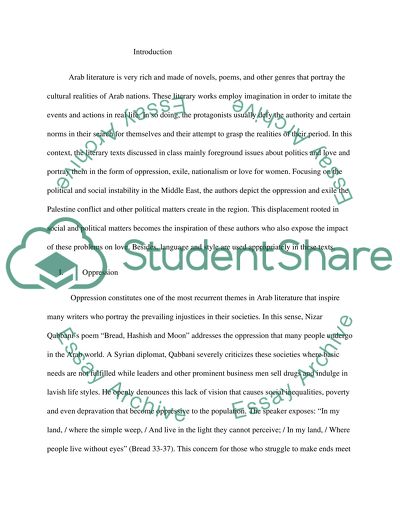Cite this document
(“The Themes of Politics and Love in Contemporary Arabic Literature Essay”, n.d.)
Retrieved from https://studentshare.org/literature/1495806-arabic-literature
Retrieved from https://studentshare.org/literature/1495806-arabic-literature
(The Themes of Politics and Love in Contemporary Arabic Literature Essay)
https://studentshare.org/literature/1495806-arabic-literature.
https://studentshare.org/literature/1495806-arabic-literature.
“The Themes of Politics and Love in Contemporary Arabic Literature Essay”, n.d. https://studentshare.org/literature/1495806-arabic-literature.


